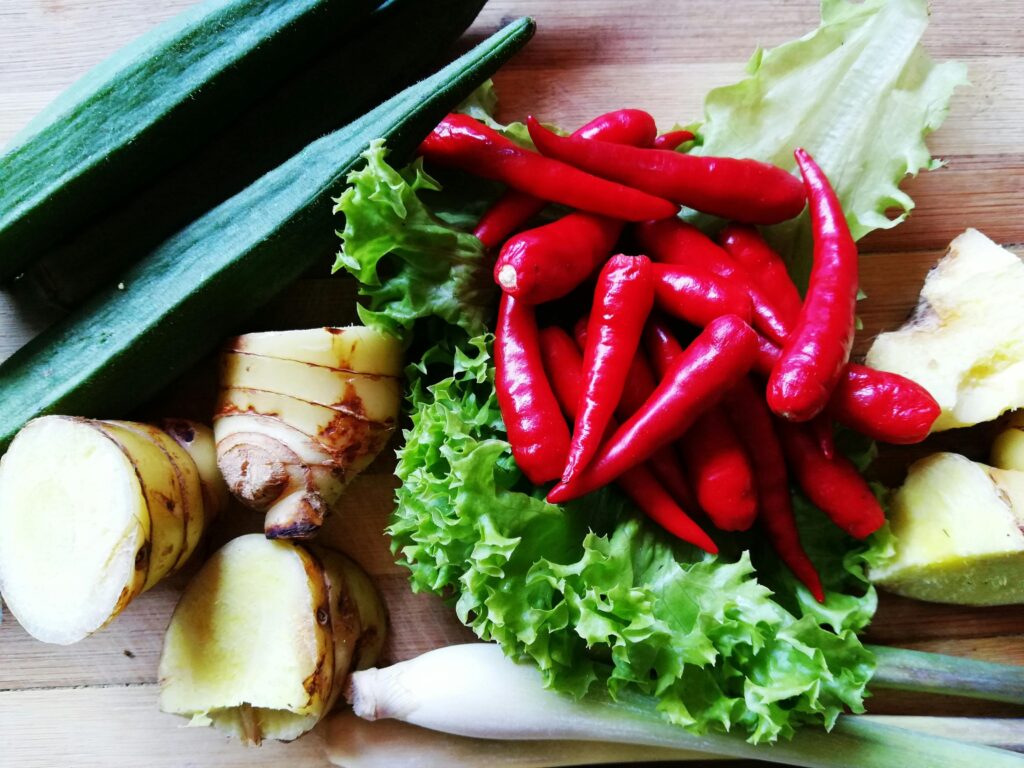Inflammation is a critical process in the body, playing both protective and harmful roles. Understanding its impact and how diet influences inflammation can empower you to make healthier choices. For women in perimenopause and menopause, chronic inflammation may exacerbate symptoms like fatigue, joint pain, and brain fog. Beyond diet, factors like chronic stress, poor sleep (consider supplements like Mia Vita Sleep), sedentary lifestyles, environmental toxins, and even certain medications can contribute to persistent inflammation. By incorporating anti-inflammatory foods, managing stress, staying active, and making holistic lifestyle adjustments, you can improve your overall health and well-being.
What Is Inflammation?
Inflammation is the body’s natural response to injury or infection. It acts as a defense mechanism, signaling the immune system to heal wounds or fight off invaders. There are two types of inflammation:
Acute inflammation
This is short term and essential for healing. For example, the redness and swelling around a cut are signs of acute inflammation.
Chronic inflammation
When inflammation persists, it can harm healthy tissues and disrupt normal body functions. Over time, this ongoing immune response can contribute to chronic illnesses such as arthritis, diabetes, heart disease, and even neurodegenerative conditions like Alzheimer’s disease. It often develops silently, fueled by factors like poor diet, prolonged stress, lack of physical activity, and exposure to environmental toxins. Understanding and addressing these contributors is vital to mitigating its long-term effects.
The Link Between Diet and Inflammation
Your diet plays a pivotal role in regulation. Certain foods can trigger inflammatory responses, while others help to reduce it. Consistently consuming a diet high in inflammatory foods increases the risk of developing chronic diseases.
A study published in The Journal of Clinical Investigation highlights the link between high-fat diets and increased markers of inflammation. Similarly, research in Biomedicines indicates that the Mediterranean diet, rich in antioxidants and anti-inflammatory properties, can combat inflammation and chronic diseases.
Diet also plays a critical role in managing ‘inflammaging,’ a low-grade inflammatory state that accelerates aging and is associated with several chronic diseases. Anti-inflammatory foods may help counteract this process and support healthier aging.
Foods That Cause Inflammation
Certain foods are known to fuel inflammation, especially when consumed regularly. Common culprits include:
- Processed and fried foods: Trans fats in these foods are linked to increased inflammatory markers.
- Refined carbohydrates: Foods like white bread, pastries, and sugary snacks cause spikes in blood sugar, which can trigger inflammation.
- Sugary beverages: High sugar intake is associated with elevated levels of inflammatory cytokines.
- Red and processed meats: These contain advanced glycation end products (AGEs), which promote inflammation.
- Artificial additives and preservatives: Many processed foods contain chemicals that can irritate the immune system and promote inflammation.
- Excess alcohol: Overconsumption of alcohol can lead to increased inflammation, liver stress, and disrupted immune function.
- Omega-6 fatty acids: Found in many vegetable oils like corn, sunflower, and soybean oil, an imbalance of omega-6 to omega-3 fatty acids can drive inflammation.
- Dairy products: While not inflammatory for everyone, some individuals experience inflammation due to sensitivity or intolerance to dairy.
- Excess salt: High sodium intake, especially from processed and packaged foods, can contribute to inflammation and increased blood pressure.
Reducing these foods in your diet can significantly lower inflammation and support overall health.
Foods That Fight Inflammation
In contrast, many foods have natural anti-inflammatory properties, helping to calm the body’s inflammatory response. Incorporate these options into your meals:
- Fruits and vegetables: Rich in antioxidants and polyphenols, such as those found in berries, leafy greens, and broccoli.
- Healthy fats: Omega-3 fatty acids in salmon, walnuts, and flaxseeds are highly effective against inflammation.
- Probiotics: Found in foods like yogurt, kefir, sauerkraut, and miso. Probiotics support gut health. Consider a high-quality supplement like Mia Vita Women’s Probiotic for added benefits.
- Whole grains: High in fiber, they support gut health and reduce inflammation.
- Spices: Turmeric and ginger contain compounds that actively reduce inflammation.
- Green tea: Packed with anti-inflammatory catechins, it’s an excellent beverage choice.
By including these foods in your diet, you can promote a healthier inflammatory balance.
Practical Tips for an Anti-Inflammatory Diet
- Transitioning to an anti-inflammatory diet doesn’t have to be complicated. Here are some actionable tips:
- Start with small swaps: Replace refined grains with whole grains and sugary snacks with nuts and some fruit.
- Add color to your plate: Aim for a variety of colorful fruits and vegetables in every meal.
- Incorporate healthy fats: Use olive oil as a dressing or cook with avocado oil or coconut oil.
- Use herbs and spices: Add anti-inflammatory options like turmeric, ginger, cinnamon, and rosemary to enhance flavor. For a simple, soothing anti-inflammatory beverage, try making a cup of ginger tea. Here’s a quick guide: Ginger Tea Recipe.
- Stay hydrated: Drink water throughout the day and opt for green tea as an anti-inflammatory beverage.
- Limit processed foods: Prepare meals at home to control ingredients and reduce the intake of inflammatory additives. A great anti-inflammatory meal is a simple salmon salad bowl. Try this recipe.
- Consistency is key. Adopting these practices as part of your daily routine can lead to long-term benefits for your health.
Inflammation, while a natural process, can become a silent contributor to chronic health issues if left unchecked. By understanding the foods that cause inflammation and embracing an anti-inflammatory diet, you can take proactive steps toward better health. Small dietary changes can make a big difference. Start today to support your body’s natural balance and reduce the risk of chronic inflammation.
